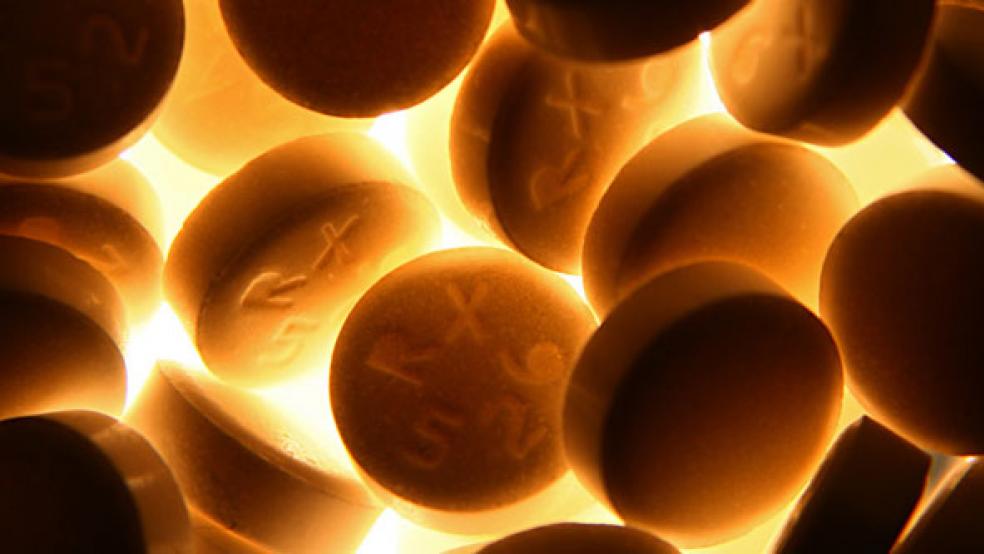Maryland Gov. Larry Hogan’s executive order earlier this month, declaring the state’s opioid addiction crisis a state of emergency, is yet another example of the state’s leadership in addressing a crisis. With overdose deaths from heroin and fentanyl up by 62 percent between the first nine months of 2015 and the same period in 2016, efforts to combat this tragic epidemic must include detox programs, counseling, and medical treatments.
In the realm of medical treatments, Maryland took bold action last year to reduce access to the opioid treatment drug, Suboxone, which has become a dangerous drug on the streets and in prisons.
Related: The White House Is Ignoring the Real Cause of the Opioid Epidemic
Suboxone, which was introduced in 2002, has become a huge money-maker since the opioid epidemic swept the country at the beginning of the 21st century. In 2015 alone, more than 52,000 Americans died from heroin and synthetic opioid overdoses, according to the Centers for Disease Control, nearly the number of Americans killed in the Vietnam War. The drug has generated $1-2 billion a year in revenues, first for its initial British manufacturer, Reckitt Benckiser, and the Richmond, Virginia-based company that it spun off two years ago, Indivior.
Many doctors and patients see the drug as effective, but its manufacturer has fought hard to keep generic or alternative drugs off the market. This has led to an antitrust suit initiated last fall by attorneys general from 42 states, including Maryland.
A sublingual version of Suboxone dispensed as a film that’s placed under the tongue has become a contraband drug smuggled into prisons, endangering inmates and correctional officers. In July, Maryland became the first state to fight back, taking the drug off its preferred Medicaid drug list—an action that Indivior appears to be vigorously fighting. Maryland replaced it with a newer treatment drug, that is said to be absorbed and processed by the body at lower doses and produce less harsh withdrawal symptoms than Suboxone. Already, prison smuggling is down sharply.
Related: Heroin Use, Addiction Up Sharply Among U.S. Whites
“Smuggling has been extremely problematic,” Van T. Mitchell, former secretary of the state department of Health and Mental Hygiene, and Steve T. Moyer, his counterpart at the head of Maryland department of Public Safety and Correctional Services Van T. Mitchell, said. “Not only does it jeopardize prisoners' health and safety but it also jeopardizes the security of correctional staff.”
As other states consider following Maryland’s lead, Indivior has recently more than doubled its lobbying presence in the state capital bringing its Annapolis lobbying presence to five. The company has a highly paid nationwide network of lobbyists from Alaska and Wisconsin to West Virginia and Kentucky and nearly tripled its spending on federal lobbying last year.
However, Suboxone, which cornered the market for opioid addiction drugs, has not only led to prison smuggling and antitrust issues but also can be addictive, causing considerable suffering.
After years of trying to fight her son’s addiction to Oxycontin and heroin, several suicide attempts, psychiatric wards, detox programs, and many therapists, Laurie Kaye Schwartz of Kensington, Maryland took her son to a drug-treatment clinic where he was put on 16 mg. of Suboxone.
Related: Republicans’ Medicaid and Housing Cuts Deal a Double Blow to Drug Crisis
Her son became dependent on the drug because it essentially replaces dopamine, one of the brain’s chemicals that influence happiness. Told that she was “better off keeping him on because there’s no protocol to get him off,” they went to another psychiatrist. Since physicians must be certified to prescribe Suboxone, the doctor got the certification and tried to taper down her son’s dose. When he tried to go cold turkey, he would get the shakes and vomit.
Ms. Schwartz’s 31-year old son was put on antidepressants, which seemed to help. He moved to California a few months ago but soon wound up on the streets and in homeless shelters.
With its market share falling and the company facing an antitrust suit, Indivior certainly has an interest in keeping other states from adopting Maryland’s policies and in weakening or reversing Maryland’s law. The company has only said that it “intends to defend” against the suit and “related actions.”
Indivior’s push is no surprise given the price of Suboxone, which costs around $500 for what seems to be the “stabilizing” treatment course, the first tier of a multi-tier treatment program.





